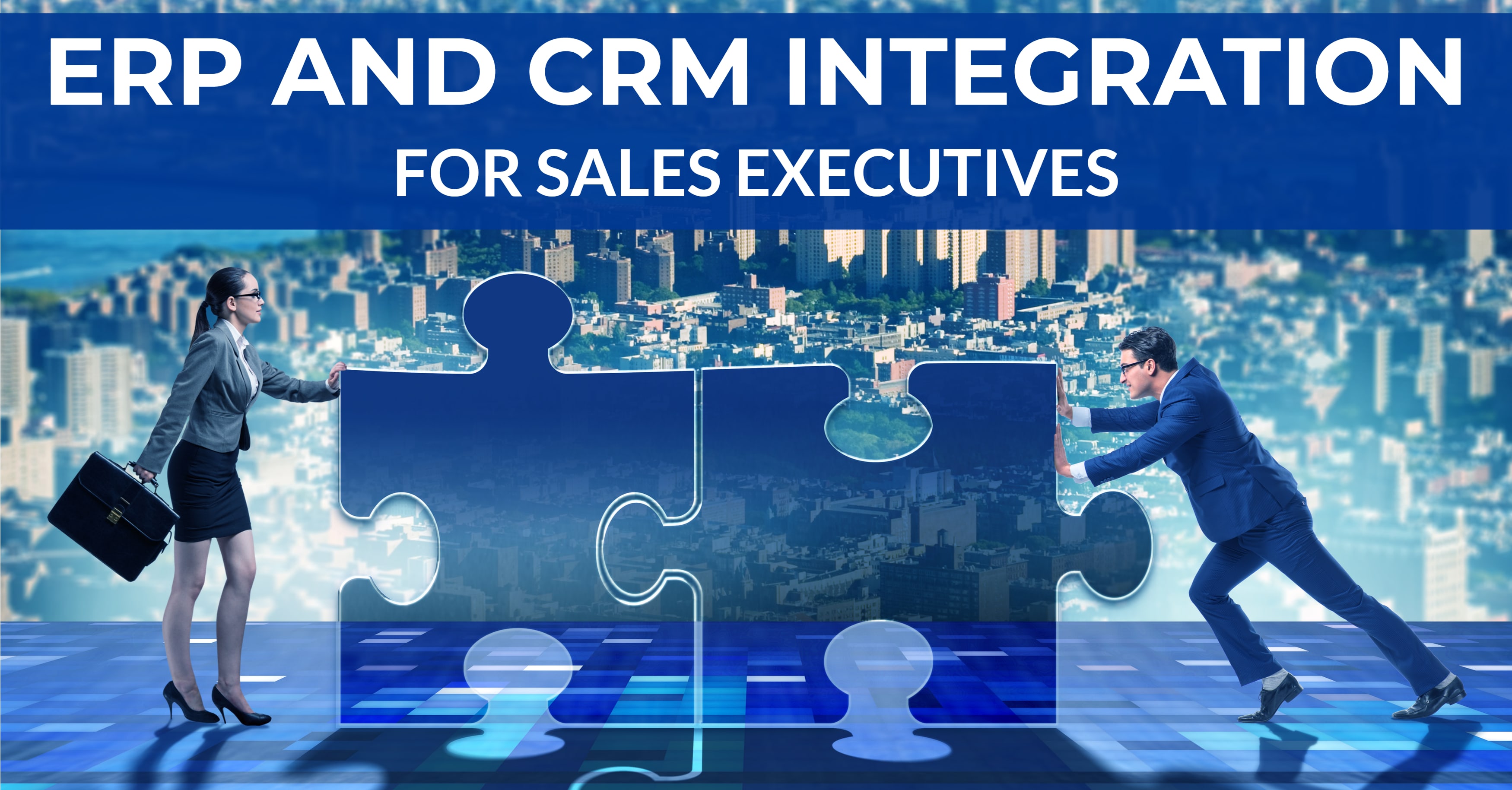
How Integration Solves Sales Pain Points
When sales teams aren’t meeting their quotas and customers are growing inpatient, panic starts to set in, especially for sales executives. At the end of the day, if goods aren’t selling, then business suffers—and all the fingers are pointed at sales leaders.
But the cause of disappointing revenue isn’t always clear. Many manufacturers and distributors are using their ERP software effectively to fulfill orders and reduce costs, while front offices are generating leads and managing contacts with their CRM systems. However, even if your separate software platforms are running strong, they could drive even greater ROI, improve visibility and solve sales issues by working together. This is what happens when you integrate CRM and ERP.
The impact of ERP and CRM integration touches all corners of your enterprise, from human resources to inventory planning. Sales executives are major beneficiaries of an integration. Uniting the back-end data in ERP systems with the front-end data in CRM systems results in a single view of customers, products and processes. Below, we’ve listed a few of the biggest sales pain points that can be solved through integrating ERP and CRM software.
Missed Quotas
Reaching sales quotas and growth targets is one of the top priorities for any sales executive, but the numbers often fall short. A software integration can uncover the reasons behind missed quotas and help you reach targets the next quarter by giving you a more complete view of your customers and exposing new opportunities.
Both front and back-end data can show you problem areas in your sales cycles and where leads are dropping out of the sale. These insights will also guide sales reps to focus their attention on the right people and activities, so they’re dedicating more time to high-quality leads. With an integration, your CRM system will be able to use a larger range of data to score leads and opportunities. This allows your sales team to prioritize its efforts.
Additionally, an integration improves customer retention. With access to ERP data, sales reps can find out the frequency that repeat customers place orders or see when customers have equipment issues. Using this information, they can capitalize on cross-sell and upsell opportunities. Deeper insights into what customers want also allows salespeople to provide personalized messaging, making it easier to win and retain buyers.
Poor Customer Satisfaction
Modern customers won’t settle for subpar service, putting pressure on sales executives to ensure that their department is delivering optimal experiences. Integrating CRM and ERP gives users a comprehensive understanding of customer histories, including first contact, final deliveries and service requests. This can help sales reps contact buyers with the right message at the right time.
It can also ensure that customers are always getting accurate, up-to-date information. For example, an order tracker shows sales teams order statuses from their CRM platform, so they can tell their customers where their product is and when it’s expected to be delivered. Salespeople can even check prices and stock levels on their mobile devices, allowing them to close deals when they’re meeting with customers away from the office.
But it’s not enough to be accurate—consumers also want speed. ERP and CRM integration automates processes to accelerate order cycles. Data keyed or updated into one platform is immediately synced into the other, giving you a single source for real-time information without redundant data entries. Proposals created in your CRM are instantly transferred into your ERP system, facilitating quicker invoices and payments. Plant managers can also utilize CRM data for precise demand planning, improving their ability to achieve perfect order fulfillment during seasonal spikes. An integrated solution provides the accuracy and speed necessary to satisfy customers and improve your net promoter score (NPS).
Lack of Visibility
At the root of many problems for sales executives is a lack of visibility. Without a full understanding of your products and customers, you can’t effectively address issues and improve sales performance. The sales team also misses out on reliable metrics to measure performance. Integrating CRM and ERP tears down these gaps in visibility to allow users to make data-driven decisions.
With ERP and CRM together, you gain a consolidated view of your end-to-end business activities. This allows you to measure the effectiveness of sales activities and fully track expenses. For example, you can accurately calculate customer acquisition costs and measure the average lifetime value (LTV) of a customer, helping you refine your budget and reduce costs.
Plus, product developers and production managers will gain a more nuanced understanding of customer needs, so they can develop customer-centric strategies. Sales reps can also see account and pricing information to help them make the right decisions when preparing a quote or proposal terms. These in-depth insights enable the entire organization to work towards improving sales and satisfying buyers, taking some of the strain off sales executives.
Wrap Up
If you’re running your ERP and CRM systems separately, you aren’t enjoying the full value of your software investments, and that could be hurting your sales processes. By bringing these platforms together, your sales executives will start seeing revenue growth. The visibility and efficiency afforded by an integrated solution has ramifications across your enterprise that will impact customer relationships and profit margins.
But not any integration method will cut it. Datix ensures that our manufacturing and distribution clients never have to tinker with the base code or endure lengthy integration projects. Unity is our pre-built integration solution that makes it easier than ever to connect ERP and CRM. Our certified consultants rapidly install Unity to integrate Infor or Epicor® ERP with Microsoft Dynamics 365 CRM or Salesforce in no time. We also provide on-going support and any necessary customizations, so your solution can generate long-term business value.
Boost profits by creating a single source of truth. Learn more about Unity by contacting the software experts at Datix today!


